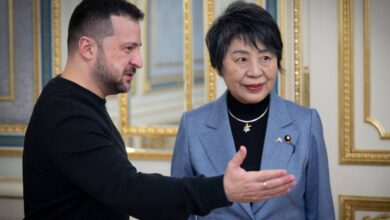The United Nations mission in Central African Republic is to establish a temporary base in Bakouma after rebels withdrew two weeks after taking control of the town, a U.N. spokesperson said on Thursday, January 17.
At least 10 people were killed after members of the Popular Front for the Renaissance of the Central African Republic (FPRC), an ex-Seleka militia, launched attacks on anti-balaka fighters in Bakouma and then targeted government troops on December 31.
By January 7, the U.N. said the majority of Bakouma’s population – more than 12,000 people – had been displaced by violence in the town.
 Government troops supported by U.N. peacekeepers on Wednesday asserted control over Bakouma, around 110 km (68 miles) from Bangassou, in the southeast of the country.
Government troops supported by U.N. peacekeepers on Wednesday asserted control over Bakouma, around 110 km (68 miles) from Bangassou, in the southeast of the country.
“The Central African army and Minusca have been in Bakouma since yesterday morning,” Pierrette Benguere, prefect for the Mboumou region, told AFP on Thursday, adding that the FPRC had left.
A source close to the anti-Balaka militia in Bangassou on Thursday said Bakouma had been reoccupied “without a clash,” AFP reported.
Minusca spokesperson Vladimir Monteiro confirmed to The Defense Post that the FPRC had withdrawn from Bakouma.
“The Minusca Force is about to establish a temporary operation base (TOB) in Bakouma to ensure protection of civilians and reassure [the] population who fled the city, in view of their return,” Monteiro said.
According to some reports, members of the Union for Peace in the Central African Republic (UPC) ex-Seleka militia were also involved in the violence in Bakouma, but Monteiro said he could not confirm UPC involvement.
Radio Ndeke Luka reported that the UPC and FPRC withdrew north to Nzako, but again Monteiro said he could not confirm this.
Despite reserves of diamonds, gold, uranium, copper and iron, Central African Republic remains one of the world’s poorest countries.
The majority-Christian country descended into violence following the 2013 ousting of President Francois Bozize in 2013 by the Seleka, a coalition of mainly Muslim rebel groups.
Seleka was officially disbanded within months, but many fighters refused to disarm, becoming known as ex-Seleka. Many others joined the mainly Christian anti-balaka militia to fight the Seleka, leading to a spiral of violence between groups along religious and ethnic lines.
By the end of 2014, CAR was de facto partitioned – anti-balaka in the southwest and ex-Seleka in the northeast.
Bakouma has reportedly been under the control of anti-balaka militias for at least two years, and the FPRC is one of the largest ex-Seleka groups.
Touadera’s weak government controls around a fifth of the country and relies heavily on the U.N. peacekeeping mission, Minusca, for support. The rest is controlled by at least 14 different militia groups who often fight each other for revenue from extortion, roadblocks or mineral resources.
Violence by both sides led to thousands of deaths. Nearly 700,000 people are displaced and 570,000 have fled the country, according to the U.N.
The U.N. Office for the Coordination of Humanitarian Affairs estimates that 2.9 million people – more than 63 percent of the population – will need humanitarian assistance in 2019.
On January 9, Touadera announced long-awaited African Union-backed peace talks between the government and armed groups set for January 24 in the Sudanese capital Khartoum.
Seven peace agreements have been signed since the crisis erupted in 2012, but none has endured.
With reporting from AFP









